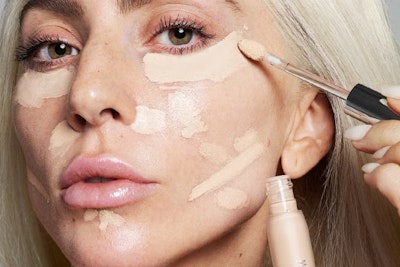Haus Labs
Skincare-infused makeup, founded by Lady Gaga

Haus Labs' Sustainability Rating
Poor
Ingredients
Haus Labs has committed to avoid certain ingredients to lower its environmental impact, including parabens, phthalates, other petrochemical-based ingredients, PFAS, and harmful suncare ingredients. While it has these ingredient commitments, it still uses some ingredients that pose a significant threat to the climate, including microplastics, other petrochemical-based ingredients, uncertified palm oil or palm oil-derived ingredients, and uncertified mica. It can be very difficult to eliminate these entirely, especially for small brands with limited resources. It carries products that have certifications from Leaping Bunny.
Containers & Packaging
Haus Labs doesn't share information about its packaging materials. It likely still relies on virgin plastic packaging, which increases its waste footprint. It hasn't made any efforts to concentrate its products or minimize its containers, which increases shipping emissions and packaging volumes.
Energy & Water Use
Haus Labs doesn't share information on its energy strategy. Haus Labs doesn't provide information on any water conservation strategies. Haus Labs has a global production span, which is standard for the industry.
Refill & Reuse
Commons couldn't find evidence that this brand offers any alternative models to lower its waste footprint, such as refills or takeback programs. It provides recycling and/or disposal guidance for some of its products.
Slow Consumption
Haus Labs offers seasonal products or frequent releases, which can encourage overconsumption and production of excess inventory.
Marketing
Commons is still evaluating this brand's marketing emails.
Transparency & Reporting
Haus Labs doesn't appear to have a sustainability page or centralized source of relevant information. Like many small brands with limited resources, it doesn't publish an annual sustainability report. Haus Labs shares a complete list of ingredients used in its products, on a per product basis.
Emissions Tracking
Commons couldn't find information on this brand's emissions tracking. This process can be an expensive undertaking for small brands.
Targets & Offsets
Commons couldn't find emissions reduction targets for this brand. Commons couldn't find evidence that this brand offsets any emissions.
Supply Chain & Labor
Haus Labs doesn't publish information about its supply chain partners. It doesn't publicly share a supplier code of conduct. Haus Labs doesn't have a stated policy of regularly auditing its supply chain partners. This may increase human and environmental risks. Commons couldn't find further information about this brand's supply chain and labor practices.
Advocacy
Commons wasn't able to find evidence of any trade association memberships or any relevant policy for this brand. Haus Labs isn't a member of any key advocacy organizations that are blocking climate policy. It isn't a member of advocacy organizations advancing climate policy. It doesn't employ any state lobbyists. Haus Labs didn't donate more than $100k to climate-obstructive candidates or PACs from 2018-2024.
Haus Labs's Poor rating is due to a lack of published sustainability information. It’s a smaller brand, which means it likely has fewer resources for robust sustainability efforts and reporting. When Haus Labs publishes more data, we’ll be able to do a more thorough review.
Commons found that this brand uses some ingredients that pose a significant threat to the climate, including microplastics, other petrochemical-based ingredients, uncertified palm oil-derived ingredients, and uncertified mica. It does successfully avoid parabens and phthalates, however.
Haus Labs doesn't utilize any alternative models or packaging minimization strategies to reduce its waste and emissions footprint. It appears to rely on plastic packaging of a virgin or undisclosed source, which contributes greatly to waste production and excess energy use.
Our ratings are based on a scale from 1 (harmful) to 5 (best). How we rate →
https://www.hauslabs.com/pages/ingredients
https://static.sephora.fr/www/webmaster/clean-planet-2024/Global-Clean-Sephora-Criteria-2024.pdf
https://www.leapingbunny.org/brand/haus-labs-lady-gaga
https://www.hauslabs.com/pages/recycling-guidelines
https://fminus.org/lobbyists/
https://www.fec.gov/data/browse-data/
Get Rewards
Earn for sustainable purchases
Commons rewards you for sustainable purchases from all our Top Rated brands, plus thousands of everyday purchases — from thrift stores to public transit.
Learn more about rewards ->




